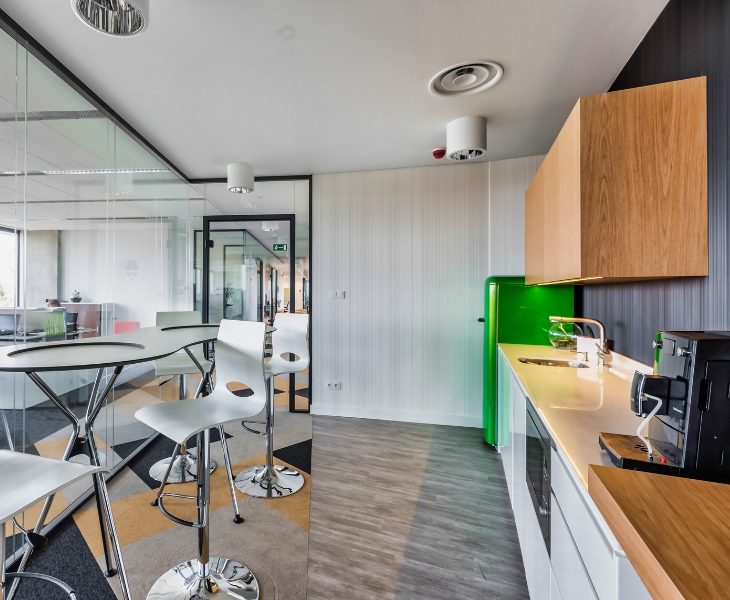The office kitchen area can be a battleground where germs, bacteria, and mould triumph. The horrors of the workplace kitchen area are real, and alarming enough to make even the most experienced office cleaning crews run screaming.
According to Dr. Peter Barratt, Technical Manager at Initial Hygiene, shared office kitchens are high foot traffic areas that can lead to cross-contamination if good hygiene practices and hand washing are not encouraged. Unwashed cups, crockery clogging the sink, food scraps, and spills cover the counters and floors can make the office kitchen a mess by the end of the day. Here are some ways you can enrol your co-workers to help ensure that your office kitchen is kept clean, safe, and healthy.
Contamination in the Kitchen
Half of the surfaces in workplace kitchens have dangerously high levels of coliforms – the bacteria found in faeces that can cause outbreaks of gastrointestinal disease.
- One-third of shared fridge handles are contaminated with high levels of coliforms.
- 30 percent of shared microwaves are contaminated around the handles and buttons.
- More than 40 percent of kettle handles are contaminated with more bacteria than toilet doors.
- 75 percent of kitchen surfaces have more bacteria than in a typical feminine hygiene bin.
Set a List of Rules
Engage the team in the rule-setting process by holding an office meeting or sending out an email outlining the need to establish some kitchen rules. Setting some practical ground rules can convince employees to keep the office kitchen in a better state.
- Thoroughly wash cups, mugs, and crockery and put them in the dishwasher after using them.
- Spills or food debris on counters, floors, or in appliances such as microwaves should be cleaned up right away.
- Store any raw food on the bottom refrigerator shelves to avoid drips coming into contact with cooked food.
- Cover food with a tight-fitting lid, cling wrap, or foil.
Keep it Clean
Make sure your kitchen is always stocked with dishwashing liquid, sponges, kitchen towels, bin liners, and a mop so that
everyone can clean up after themselves.
- Appliances like the refrigerator and microwave should be cleaned on a regular basis with disinfectant, antibacterial spray, or antimicrobial wipes.
- Use paper towels instead of tea towels for wiping the surface or appliances to avoid cross-contamination.
- Wash and sanitise hands regularly to keep the spread of bacteria at bay.
- Avoid the risk of food poisoning by throwing away dubious-looking food items or out-of-date condiments.
Post Signs in the Kitchen
After you have implemented an office kitchen policy, it’s a good idea to put up signs in the appropriate areas.
- Post a sticky note on or near the fridge to label food or to be aware of expiry dates.
- Post a sign on the office kitchen door or just above the sink to remind employees to always wash their hands
before and after eating. - Make it clear that all rubbish should be placed in the correct bins, and make sure bins are clearly labelled.
- Remind employees to turn off appliances when not in use.

